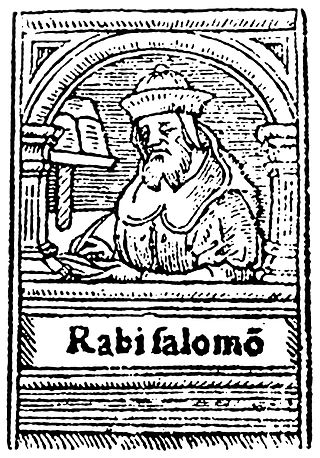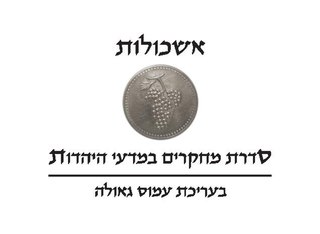Elazar Hurvitz (born September 23, 1935) is an academic scholar in the field of Talmudic studies.
Elazar Hurvitz (born September 23, 1935) is an academic scholar in the field of Talmudic studies.
He teaches at Yeshiva College and the Bernard Revel Graduate School of Jewish Studies, both schools of Yeshiva University. Hurvitz is Professor of Biblical and Talmudic Literature, and holds the Dr. Samuel Belkin Chair in Judaic Studies. He is also an ordained rabbi.[ citation needed ] In addition, Prof. Hurvitz is the creator and curator of the Eli Michael Microfilm Center for Genizah Studies on the fourth floor of Yeshiva University's library. [1]
Hurvitz's sub-areas of specialty are: halakhic and midrashic literature, Geonic literature, and Genizah research. He earned a doctorate from Yeshiva University's Bernard Revel Graduate School in 1965. His dissertation was: Nature and sources of Yalkut Talmud Torah by Rabbi Jacob Sikili.
Hurvitz is the editor of many collections of scholarly articles in the field of Jewish studies. Some of Hurvitz's important publications include:
Hurvitz co-edited, with Jay Braverman, the volume: The Prophet Amos and his times : a selection of sources and studies (Yeshiva College: New York. 1965)
In 1969–1970, Hurvitz won the National Foundation for Jewish Culture's study grant. [2]
Rabbi Adin Even-Israel Steinsaltz was an Israeli Chabad Chasidic rabbi, teacher, philosopher, social critic, author, translator and publisher.

The Mishnah or the Mishna is the first major written collection of the Jewish oral traditions that are known as the Oral Torah. It is also the first major work of rabbinic literature. The Mishnah was redacted by Judah ha-Nasi probably in Beit Shearim or Sepphoris between the ending of the second century and the beginning of the 3rd century CE in a time when, according to the Talmud, the persecution of Jews and the passage of time raised the possibility that the details of the oral traditions of the Pharisees from the Second Temple period would be forgotten. Most of the Mishnah is written in Mishnaic Hebrew, but some parts are in Aramaic.

Shlomo Yitzchaki, generally known by the acronym Rashi, was a medieval French rabbi, the author of comprehensive commentaries on the Talmud and Hebrew Bible.

The Talmud is the central text of Rabbinic Judaism and the primary source of Jewish religious law (halakha) and Jewish theology. Until the advent of modernity, in nearly all Jewish communities, the Talmud was the centerpiece of Jewish cultural life and was foundational to "all Jewish thought and aspirations", serving also as "the guide for the daily life" of Jews.

Rabbinic literature, in its broadest sense, is the entire spectrum of rabbinic writings throughout Jewish history. However, the term often refers specifically to literature from the Talmudic era, as opposed to medieval and modern rabbinic writing, and thus corresponds with the Hebrew term Sifrut Chazal. This more specific sense of "Rabbinic literature"—referring to the Talmudim, Midrash, and related writings, but hardly ever to later texts—is how the term is generally intended when used in contemporary academic writing. The terms mefareshim and parshanim (commentaries/commentators) almost always refer to later, post-Talmudic writers of rabbinic glosses on Biblical and Talmudic texts.

A yeshiva is a traditional Jewish educational institution focused on the study of Rabbinic literature, primarily the Talmud and halacha, while Torah and Jewish philosophy are studied in parallel. The studying is usually done through daily shiurim as well as in study pairs called chavrusas. Chavrusa-style learning is one of the unique features of the yeshiva.

The Mishneh Torah, also known as Sefer Yad ha-Hazaka, is a code of Rabbinic Jewish religious law (halakha) authored by Maimonides. The Mishneh Torah was compiled between 1170 and 1180 CE, while Maimonides was living in Egypt, and is regarded as Maimonides' magnum opus. Accordingly, later sources simply refer to the work as "Maimon", "Maimonides", or "RaMBaM", although Maimonides composed other works.

Naftali Zvi Yehuda Berlin, also known as Reb Hirsch Leib Berlin, and commonly known by the acronym Netziv, was an Orthodox rabbi, Rosh yeshiva (dean) of the Volozhin Yeshiva and author of several works of rabbinic literature in Lithuania.
Geonim were the presidents of the two great Babylonian Talmudic Academies of Sura and Pumbedita, in the Abbasid Caliphate, and were the generally accepted spiritual leaders of the Jewish community worldwide in the early medieval era, in contrast to the Resh Galuta (exilarch) who wielded secular authority over the Jews in Islamic lands.
In Jewish law and history, Acharonim are the leading rabbis and poskim living from roughly the 16th century to the present, and more specifically since the writing of the Shulchan Aruch in 1563 CE.
Chananel ben Chushiel or Ḥananel ben Ḥushiel, an 11th-century Kairouanan rabbi and Talmudist, was in close contact with the last Geonim. He is best known for his commentary on the Talmud. Chananel is often referred to as Rabbeinu Chananel – Hebrew for "our teacher, Chananel".

Bernard (Dov) Revel was an Orthodox rabbi and scholar. He served as the first President of Yeshiva College from 1915 until his death in 1940. The Bernard Revel Graduate School of Jewish Studies at Yeshiva University, as well as the former Yeshiva Dov Revel of Forest Hills, are named after him.

Rabbi Solomon Aaron Wertheimer, was a Hungarian rabbi, scholar, and seller of rare books.
Jewish commentaries on the Bible are biblical commentaries of the Hebrew Bible from a Jewish perspective. Translations into Aramaic and English, and some universally accepted Jewish commentaries with notes on their method of approach and also some modern translations into English with notes are listed.

Michael Rosensweig is a Rosh Yeshiva at the Rabbi Isaac Elchanan Theological Seminary of Yeshiva University and the Rosh Kollel of the Beren Kollel Elyon.
Ephraim (Fred) Kanarfogel is a professor and dean at Yeshiva University and one of the foremost experts in the fields of medieval Jewish history and rabbinic literature, as well as an ordained rabbi and Torah scholar.
Mercaz HaTorah is a Lithuanian-style Orthodox yeshiva located in the Arnona neighborhood of Jerusalem.

Pinchas Hacohen Peli was an Israeli modern Orthodox rabbi, essayist, poet, and scholar of Judaism and Jewish philosophy.

Zohar Amar is a professor in the Department of Land of Israel Studies at Bar-Ilan University, whose research specialties are: natural history in ancient times; the identification of the flora of the Land of Israel and identification of the fauna of the Land of Israel according to descriptions in classical Jewish sources; the material culture and realia of daily life in the Middle Ages as reflected in agriculture and commerce; the history of medicine and ethno-pharmacology. His research integrates diverse fields of knowledge, including branches of natural science, history, archaeology, linguistics, and Judaic studies.

"Eshkolot" is a Jewish Studies book series, edited by Amos Geula, a project of the Herzog College research institute that is published by the research authority of Herzog College in collaboration with the World Union of Jewish Studies. The Judaic Studies series includes works from the various fields of Judaism, which have a significant contribution and are a complete study of a particular subject or a critical edition of a manuscript with a comprehensive introduction. Each book is accompanied by a professional academic committee and undergoes academic editing as well as peer review. Some of the books in the series have unique databases open to the public which can be found on the Herzog College's Research Authority website under "Herzog Databases".
https://web.archive.org/web/20070827075625/http://www.yu.edu/revel/faculty.asp